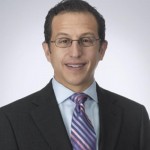(Bloomberg LP reporting via TradersMagazine) — Dan Mathisson, aka “Mr. Algo”, the executive who helped build Credit Suisse Group AG into an electronic-trading powerhouse over the past decade, plans to leave the bank at the end of next month, according to people familiar with the matter.
Mathisson, who most recently served as head of U.S. equity trading for the brokerdealer, made the decision to go, according to the people, who asked not to be identified discussing personnel matters. The bank plans to separate electronic trading from block trading, said one of the people, after those businesses had been pushed together during his ascent. The separation is part of broader changes within the Zurich-based company’s markets business.
The 45-year-old is leaving at the same time the private stock-trading platform that he oversaw is under investigation. Bloomberg News reported in September that the bank will pay more than $80 million to settle federal and New York authorities’ allegations that it didn’t adequately inform customers of how the Crossfinder dark pool operated.
Mathisson plans to open his own asset-management business next year, according to a person familiar with the matter. A company spokeswoman said he wasn’t available to comment. The Wall Street Journal reported earlier Tuesday that Mathisson is leaving.

Mr. Algo
Once dubbed “Mr. Algo,” Mathisson was one of the most prominent faces in modern, electronic markets. He help build Crossfinder into one of the largest U.S. dark pools. When lawmakers started to ask whether Wall Street’s private trading clubs had made stock markets less transparent and less fair, Mathisson trekked to Washington to defend them in a way that was unparalleled by his peers at other banks. He testified several times before Congress in recent years, vowing that dark pools weren’t as mysterious as their cryptic-sounding name implied.
He joined Credit Suisse in 2000 after eight years at quantitative hedge fund D.E. Shaw & Co., where he was the firm’s head stock trader and built his own trading models. Credit Suisse executive Bob Jain, who ran the bank’s quantitative trading desk, introduced Mathisson to colleagues as “Mr. Algo,” a reference to his status as an innovator in a field that was just starting to sweep through Wall Street: Using computer algorithms to automate big transactions.
Mathisson is known for being as much a translator as a trader. A fixture at industry conferences, he’s well regarded for his skills at explaining the complex architecture of the modern stock market in ways that a layman can understand, according to peers.
Under his leadership, Credit Suisse grabbed market share by selling algorithms directly to money managers. The programs resulted in better executions for institutional investors, who want to have their large orders filled without stock prices moving against them.
Before dark pools ran afoul of regulators, one of their biggest threats in Washington was lobbying by stock exchanges. New York Stock Exchange and Nasdaq Inc. executives were aggressively complaining to lawmakers that too much volume had moved off public venues, which had made trading less transparent and could affect the prices all investors pay to buy and sell shares. When the Senate and House held hearings, Mathisson became the go-to witness for banks that operated dark pools.
“Much of the debate over dark pools is misguided and is fueled by a desire by exchanges to avoid healthy competition,” he told a subpanel of the Senate Banking Committee in 2009.
For the full story, please click here

